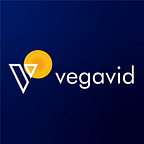Unlocking Innovation: Exploring the World of Blockchain Platforms
In the rapidly evolving landscape of technology, blockchain has emerged as a revolutionary concept that can potentially transform various industries. At the core of this innovation are blockchain platforms, which provide the foundation for building decentralized applications and services. In this blog, we delve into the realm of blockchain platforms, exploring their significance, types, and their impact on the digital landscape.
Understanding Blockchain Platforms
Blockchain platforms are the infrastructural frameworks that allow developers to create, deploy, and manage decentralized applications (dApps) and smart contracts. They provide a collaborative environment where developers can harness the power of blockchain technology without needing to build everything from scratch.
Types of Blockchain Platforms
There are several types of blockchain platforms, each with its unique features and capabilities. The two primary categories are:
- Public Blockchain Platforms: These are open and permissionless platforms, allowing anyone to participate and build applications on the network. Ethereum, Binance Smart Chain, and Cardano are prominent examples of public blockchain platforms.
- Private/Permissioned Blockchain Platforms: These platforms are designed for specific organizations or groups. They offer enhanced privacy and control, making them suitable for industries like finance and healthcare.
The Impact of Blockchain Platforms
- Decentralization: Blockchain platforms enable decentralization by distributing data and control across a network of participants. This enhances transparency, reduces the risk of single points of failure, and promotes trust.
- Smart Contracts: Smart contracts are self-executing contracts with the terms directly written into code. Blockchain platforms facilitate the creation and execution of these contracts, automating processes and reducing the need for intermediaries.
- Tokenization and Digital Assets: Blockchain platforms have paved the way for creating and managing digital assets and tokens. This has significant implications for fundraising, rewards systems, and even fractional ownership of physical assets.
- Supply Chain Management: Blockchain platforms are revolutionizing supply chain management by providing a transparent and immutable ledger of transactions. This enhances traceability and reduces fraud.
- Identity Management: Decentralized identity solutions built on blockchain platforms offer individuals greater control over their personal data while ensuring security and privacy.
Choosing the Right Blockchain Platform
Selecting the appropriate blockchain platform is crucial for the success of a project. Consider factors like consensus mechanism, scalability, community support, and the specific requirements of your application.
In conclusion, blockchain platforms are the building blocks of a decentralized future. They empower developers to create innovative solutions that redefine industries across the board. As the technology continues to advance, the potential applications of blockchain platforms are only limited by our imagination.
Whether you’re a developer, entrepreneur, or simply interested in technology, understanding blockchain platforms is a step toward embracing the transformative power of blockchain in shaping the digital world.
So, whether you’re building a groundbreaking dApp, exploring new business models, or simply curious about the technology, blockchain platforms are where the journey begins.
